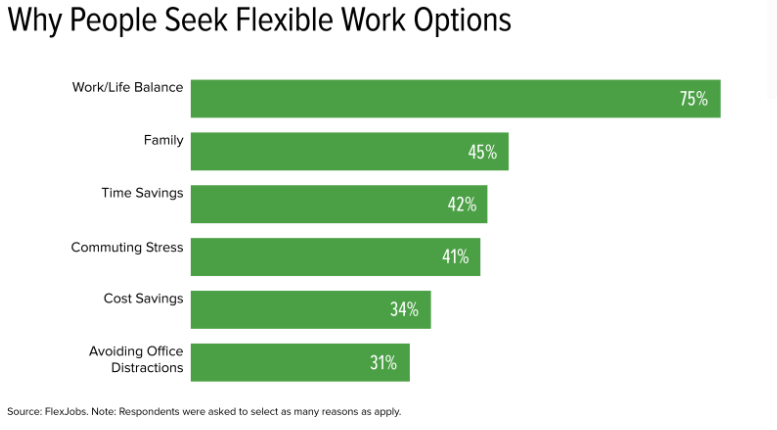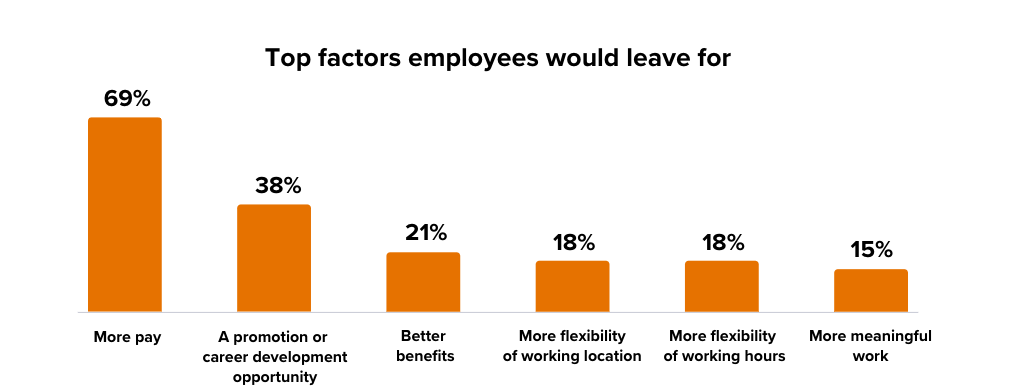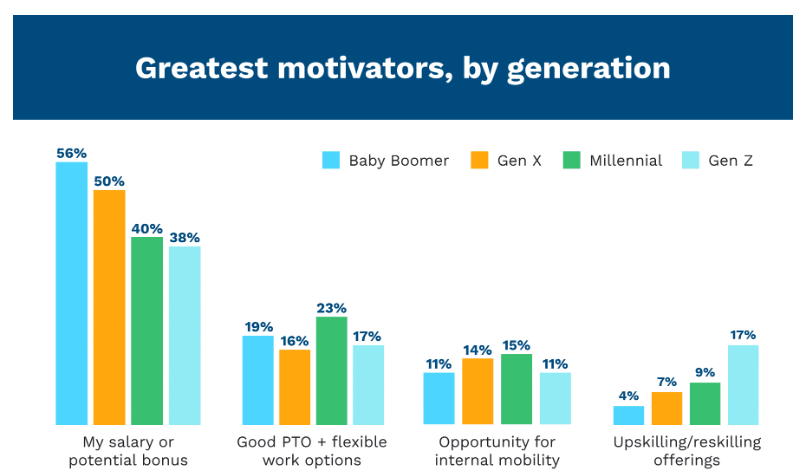We’ve been finding talent for companies in the Architecture and Interior Design industry for over 20 years. Through our experiences and expertise, we encourage firms to really take the time to ensure that once the hire is secured that they will cultivate an environment in which employees feel satisfied, giving said employee the incentive to stick around.
Employee retention is your business’s ability to hold on to its employees. This is a factor of your business that is imperative to master because poor employee retention can have detrimental effects on your organization both financially and culturally. On the other hand, companies who hold on to their workers for a significant amount of time reap wonderful benefits such as improved work culture, increased revenue, increased morale, and more experienced employees; leading to a better customer experience.
As every business knows, finding the right talent to contribute to your goals is a serious task that consumes a significant amount of time. Therefore losing that employee essentially equates to throwing time and money away. Losing staff also acts as a burden to the rest of your team just as much as it does to management. Especially if said employee leaves unexpectedly, this can have major effects on operations.
Below, we’ll explain how you can avoid losing talent prematurely and hopefully keep them with your company for the long run.
Encourage Work-Life Balance
Employee burnout is one of the many reasons someone may decide to part ways with their job, and one of the surefire ways to burn out your employees is to overwork them with little to no time for their personal life. Poor work-life balance can lead to depression and disengaged employees. Vacations, time with family, and occasional PTO to manage health is essential to one’s livelihood and a business can operate at its highest level when the contributors are in their best shape physically and mentally.
Provide & Embrace Feedback from Employees
Embracing feedback is essential to one’s growth. This also applies to business. Make it a habit to create a space in which employees feel comfortable voicing their opinions and grievances, even when it may be hard to hear. Of course, listening is only the first step. Analyze complaints or concerns by your employees, and if you find that many members of your staff have the same needs, it’s a sign to make some changes, whatever those may be.
On the flip side, providing feedback to your employees is a great way to keep your employees improving, engaged, motivated, and feeling a part of something greater. Employee feedback also fosters a culture of healthy communication which will help to strengthen your relationship with your workers. Also, when you practice regular feedback with your employees, there leaves less room for surprise when review time comes around.
Create Flexibility
A flexible work schedule is desirable to most employees (according to this study) in this work climate and can make a huge difference in the talent you attract to your company in the long run. A flexible work schedule fosters happier and even more loyal employees. This is because employers don’t feel that they have time for their work and personal life as opposed to feeling like they have to let go of one or the other. There are various reasons why an employee may feel that a flexible work schedule benefits their life. Some of these reasons can be seen in the stats below.

Provide Perks & Benefits
When looking for top talent, you’re faced with competing with various other firms seeking the same. Just as it’s important for the candidate to stand out, you should also separate yourself from the competition, even after you’ve secured the candidate. A great way to defend yourself against other companies trying to snag your talent is to offer perks and benefits tailored to your employee’s needs. This is where listening to feedback comes in.
Practice Inclusion
An inclusive workplace is a happy workplace. However, inclusion is not to be confused with diversity. Inclusion is the act of assuring your employee that they are wanted, they fit and their personal style and differences are honored at work. Enforcing a positive work culture and encouraging inclusion amongst your employees is the best way to prevent workplace cliques and pettiness. If your employees feel included in the culture of the company, then they will be more likely to have better mental health, lower absenteeism, and increased engagement in all areas amongst other benefits.
Autonomy
Workplace autonomy is defined as the freedom that employees have to do their jobs. Specifically relating to the pace and order in which the work is completed. Giving your employees a sense of autonomy increases the trust between staff and management, resulting in better relationships and retention of employees. Autonomy helps to strengthen inclusion because it acknowledges that not everyone works and thinks the same, in addition to fostering more creative thinking and alleviating performance pressure.
Compensation
Reportedly, 55% of employee turnover is the result of employees quitting their current job for other positions. Compensation is reportedly one of the top reasons why employees choose to leave their jobs. The key to employee retention is to meet their needs and there’s no way around it, adequate compensation is an essential need for everyone. As a company, it’s important that you rely on thorough, competitive research to come up with the amount of pay you’re offering a candidate. Click to read more about useful compensation practices that can help you drive retention.

Implement Check-ins
Implementing regular check-ins with your team opens up a space for employees to feel comfortable sharing their struggles or roadblocks they’re currently facing in their day. Practicing this creates a feeling of support for your workers. Checking in regularly throughout the workweek is beneficial to you because you’ll have the opportunity to target issues early before they result in something more consequential. This is beneficial for employee retention because it can result in your workers feeling supported and on track.
Create an Efficient Onboarding Process
Creating an onboarding process that is well thought out and efficient makes a huge difference in the employee’s experience with the company and the employee’s performance throughout the duration of their tenure. The consequences of not implementing a proper onboarding plan can lead to an employee feeling as if they don’t have enough guidance. Visit our page for our new hire guidelines and onboarding plan.
Provide Recognition for Accomplishments Both Big and Small
Finally, acknowledgment of your employee’s accomplishments in and out of the workplace is a great way to make them feel like what they’re doing is worthwhile and enforce your company values. Employee recognition is a powerful feedback tool that can boost employee retention by helping them to feel more motivated and likely to go the extra mile for the company. In Quantum Workplace’s research results, it was revealed as the #3 reason why employees leave their current positions. In one of our previous blogs, we explained to readers how they could celebrate their employees in a real way.
It’s important when taking this advice into consideration, to remember that you should tailor your practices to the needs of your team. What is important to people can vary on a multitude of different demographic factors. Check out this data presented by Lever on employees’ greatest motivators by generation.

Take the time to evaluate your company and its culture to determine if you’re implementing the above steps. If not, consider making the appropriate changes to increase the satisfaction of your workers, productivity, and your company’s employee retention.
Also, don’t forget to keep in touch with us on Instagram, LinkedIn, and Facebook for similar content and career opportunities.